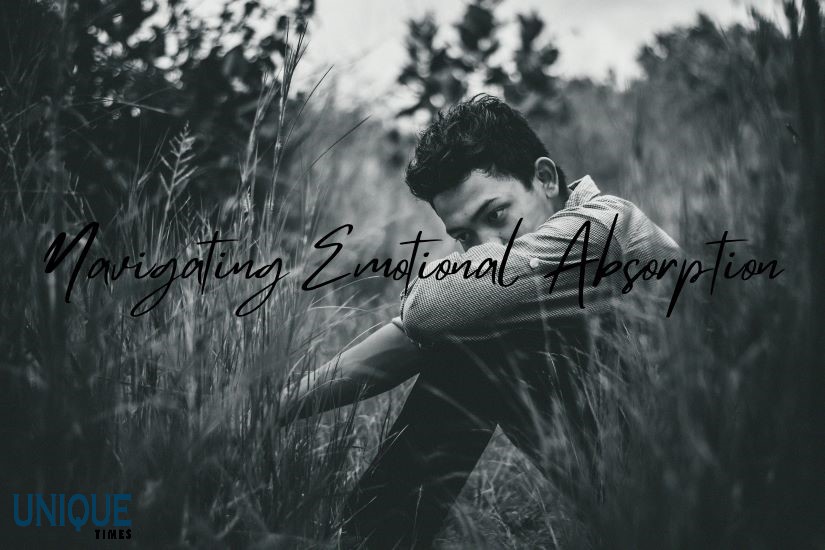What Is Emotional Absorption And How To Identify Its Signs?

Emotional absorption, often referred to as emotional sponge syndrome, is a phenomenon where individuals deeply internalize and absorb the emotions of those around them, often to the point of experiencing those emotions as if they were their own. This heightened sensitivity to the emotional experiences of others can have a significant impact on one’s well-being and relationships. In this blog, we’ll explore what emotional absorption is and how to recognize its signs.
What is Emotional Absorption?
Emotional absorption is a trait characterized by an individual’s tendency to soak up and mirror the emotions of others. People who experience emotional absorption may find themselves easily overwhelmed by the emotions of those around them, whether it’s joy, sadness, anxiety, or anger. This heightened sensitivity can lead to a blurring of boundaries between one’s own emotions and those of others, making it challenging to maintain emotional equilibrium.
Signs of Emotional Absorption
- Empathetic Sensitivity: Individuals with emotional absorption often possess a high level of empathy and sensitivity towards others’ emotions. They may easily pick up on subtle cues and nonverbal signals, allowing them to intuitively understand and resonate with the feelings of those around them.
- Mood Contagion: Emotional absorbers are susceptible to “catching” the emotions of others, experiencing them as if they were their own. For example, being around someone who is feeling anxious may trigger feelings of anxiety or unease in the emotionally absorbed individual, even if they were initially feeling fine.
- Difficulty Setting Boundaries: Those prone to emotional absorption may struggle to establish healthy emotional boundaries with others. They may find it challenging to differentiate between their own emotions and the emotions of others, leading to feelings of overwhelm or emotional exhaustion.
- Overwhelming Empathy: While empathy is a valuable trait, emotional absorbers may experience it to an extreme degree, often feeling overwhelmed by the intensity of their emotions or the emotions of others. This can manifest as emotional fatigue or burnout, particularly in emotionally demanding situations or relationships.
- Impact on Relationships: Emotional absorption can influence how individuals interact with others and navigate interpersonal relationships. They may be perceived as highly empathetic and compassionate, but they may also struggle with emotional regulation and maintaining their sense of self in relationships.
Managing Emotional Absorption
While emotional absorption can present challenges, there are strategies to help individuals manage and cope with this trait:
- Self-awareness: Recognize and acknowledge your tendency towards emotional absorption. Understanding your emotional patterns and triggers can help you navigate them more effectively.
- Setting Boundaries: Learn to establish healthy emotional boundaries with others. Practice saying no when necessary and prioritize self-care to protect your emotional well-being.
- Mindfulness: Cultivate mindfulness practices to ground yourself in the present moment and maintain emotional balance. Techniques such as deep breathing, meditation, and journaling can help you stay centered and focused.
- Seek Support: Surround yourself with supportive friends, family members, or mental health professionals who can provide guidance and validation. Sharing your experiences with others who understand can be comforting and empowering.
- Self-compassion: Be kind and compassionate towards yourself. Understand that it’s okay to feel deeply and to experience emotions intensely. Practice self-compassion and self-care to nurture your emotional resilience.
In conclusion, emotional absorption is a complex phenomenon that can have a profound impact on an individual’s emotional well-being and relationships. By recognizing the signs of emotional absorption and implementing effective coping strategies, individuals can learn to navigate their empathetic sensitivity with greater self-awareness and resilience.
Picture Courtesy: Google/images are subject to copyright








